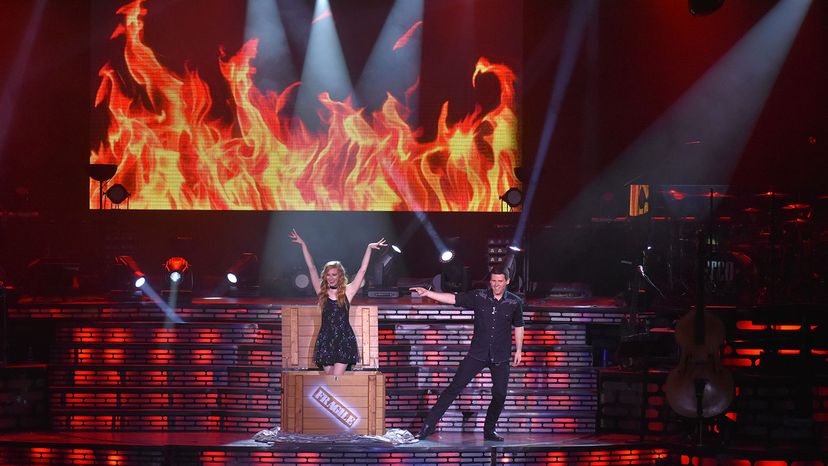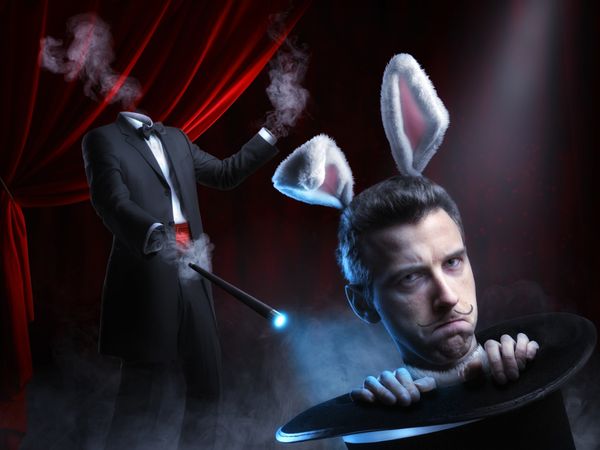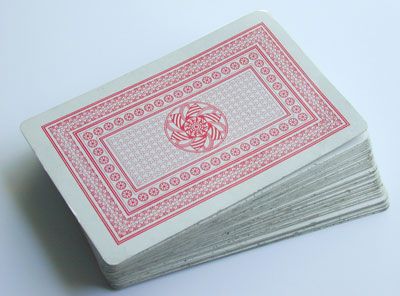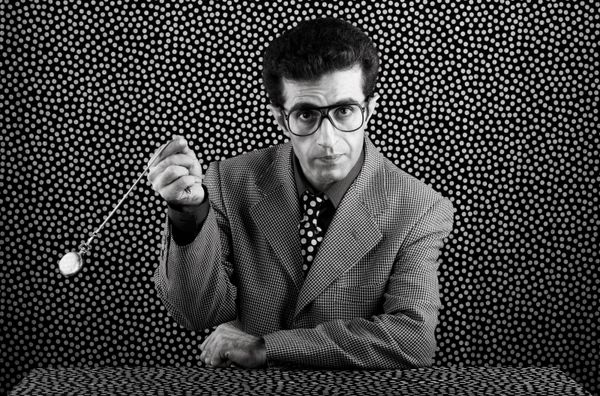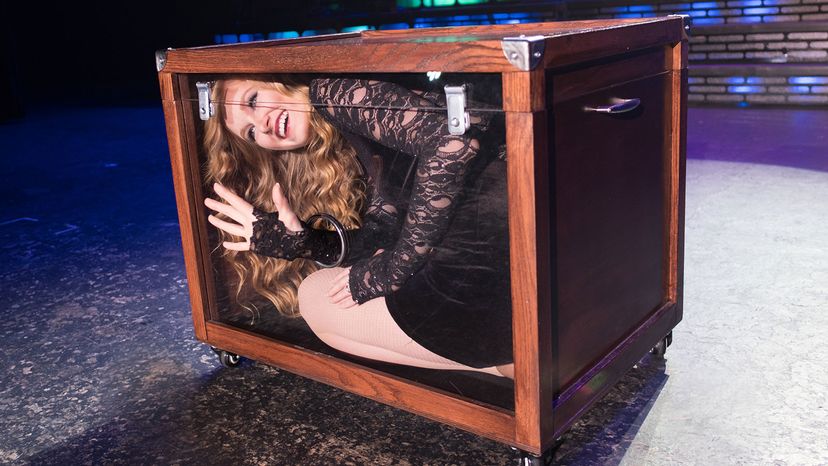
In magic industry lingo, magician's assistants are called "box jumpers," because to the audience, that's all the "lovely assistant" appears to do. She's there to look pretty, smile big, wave her hands around unnecessarily, and pop out from the padlocked box precisely when the magician says, "Ta-daa!"
But magic insiders know the real story. When the trunk lid closes, the sheet is raised, or the saw is lowered to the box, it's often the assistant who does the real "magic" of the illusion — releasing the latch on the false bottom and cramming herself into a 10-inch space while executing her ninth costume change of the evening. All before the dude in the top hat says, "Ta-daa!"
Advertisement
Although magic is undeniably a male-dominated profession if you only look at the name on the marquee, those who know the most about the stagecraft behind the magician-assistant relationship say that the industry is not as sexist as it appears.
Blaire Baron, who co-produced the 2008 documentary "Women in Boxes" about the unsung magician's assistant, explains that on stage, both the magician and the assistant are playing roles, roles that artfully play off the audience's gendered expectations.
"The biggest misconception is that magician's assistants are marginalized, objectified 'bimbos,' if you will, who are deferring to some guy," says Baron, "When actually, in my experience, they are the brains behind a lot of the illusions."
Baron would know. She married into one of the royal families of magic. Her husband, Dante Larsen, is the son of Irene and Bill Larsen, Jr., two of the co-founders of The Magic Castle in Hollywood, the world's preeminent magic club. And Irene, who passed away in 2016, was herself an accomplished magician's assistant in her day.
Advertisement
